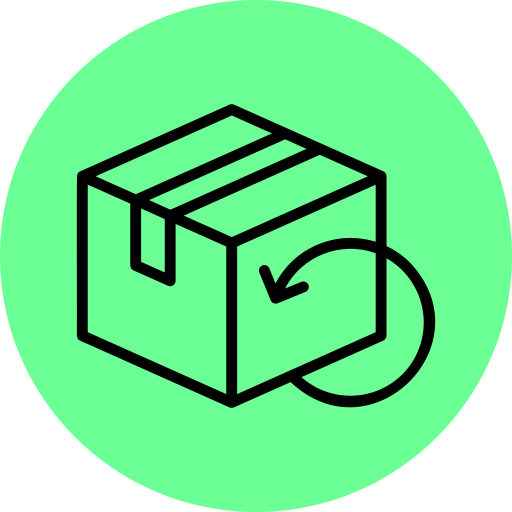Our immune system is designed to protect us from viruses and bacteria—and ensure we stay healthy. But what happens when our immune system is compromised? We'll explain how to recognize that your immune system is weakened—and what you can do about it.
Table of contents:
- How does our immune system work?
- Causes of a weak immune system
- Weakened immune system: symptoms
- Strengthen your immune system: What you can do
- Conclusion: Support your body’s defenses
How does our immune system work?
The immune system is our personal protective shield against pathogens and diseases. To ensure this works, our innate immune defenses work together with our acquired immune defenses:
- Innate protection (nonspecific immune defense): Our body's first barrier against pathogens is our skin. It prevents viruses and bacteria from entering our body. Innate protective barriers are also found in the respiratory tract and gastrointestinal tract, for example. Certain phagocytes and proteins also belong to this system.
- Acquired protection (specific/adaptive immune defense): When pathogens enter our body for the first time, the specific immune defense is activated. Defense cells recognize the invader and release signaling molecules to fight it. After a few days, this acquired protective shield develops specialized defenses—B cells and T cells—to eliminate precisely that pathogen. If the body encounters the same pathogen again later, the defense cells are already "trained" and can eliminate it much more quickly.
Where is the immune system located?
The immune system is a complex system of organs, cell types, and molecules that protect us from harmful substances and diseases. It is located in various parts of the body:
- bone marrow
- Thymus (a small gland in the middle of the chest)
- Almonds
- Lymphatic vessels and lymph nodes
- spleen
The immune system is a sophisticated interplay of innate and adaptive mechanisms to fight pathogens. But what happens when this system gets out of balance?
Causes of a weak immune system
Immunodeficiency can be either congenital or acquired - in this case it is referred to as primary or secondary immunodeficiency.
- Primary immunodeficiency: genetic (congenital)
- Secondary immunodeficiency: Acquired, often due to an illness
This congenital weakness of the immune system is usually diagnosed in childhood and manifests itself through abnormally recurring infections and illnesses. With a prevalence of less than 1:2000, it is considered a rare disease. [1]
Acquired weakness, on the other hand, is usually the result (or accompanying symptom) of an illness, for example:
- Systemic diseases, e.g. diabetes, HIV or malnutrition
- Immunosuppressive diseases, e.g. chemotherapy
- Long-term serious illnesses
If the underlying disease can be alleviated, the immune deficiency can also subside again.
However, it is much more likely that our immune system is weakened by an unhealthy lifestyle.
The most common causes of a weak immune system include:
- Unhealthy diet / malnutrition
- Micronutrient deficiency
- Constant stress
- lack of sleep
- Lack of exercise
- Alcohol & Nicotine
- pregnancy
- Aging of the immune system
So, there doesn't necessarily have to be a serious illness behind a supposed immune deficiency - it can also be an urgent indication of a need for improvement in everyday lifestyle.
Nevertheless, if in doubt, talk to your family doctor if you feel that your immune system needs help.
Weakened immune system: symptoms
A weakened immune system is primarily evident in a higher susceptibility to infections. This means you get sick more quickly and more often, and recovery from the infection takes significantly longer. Frequent colds and flu-like infections are typical examples.
However, the immune system isn't always directly impaired to this extent. A merely weakened immune system can also manifest itself through other symptoms:
- Tiredness and exhaustion
- Feeling weak
- Fatigue
- lack of motivation
- Loss of appetite
- malaise
- Feeling cold
Fortunately, you can strengthen your immune system with many different tips and tricks - and thus protect yourself from pathogens.
Strengthen your immune system: What you can do
Healthy eating
Our immune cells require a relatively high amount of nutrients to function optimally. If we don't provide our bodies with these micronutrients, fewer immune cells are produced, making us more susceptible to pathogens.
Our body therefore needs, among other things:
- Vitamin C (protects cells from oxidative stress)
- Vitamin D
- Vitamin A (important for cell specialization)
- Vitamin B2
- Vitamin B12
- Zinc (important for cell division)
- selenium
- copper
- Folic acid
- Biotin
The good news: With a varied, wholesome diet, you can usually meet your nutritional needs relatively easily.
To help you, you can follow the recommendations of the American Heart Association :
- Adjust your food and calorie intake to your physical activity (your energy expenditure). The goal is to avoid being overweight or underweight to reduce your risk of cardiovascular disease.
- Eat plenty of fruits and vegetables. Focus on dark fruits and vegetables—they're richer in nutrients and fiber.
- Whole grain products instead of refined flour - the latter lacks valuable fiber and ingredients from the germ and shell.
- Eat high-quality proteins from plant sources, fish and seafood, and dairy products.
- Avoid processed meats and red meat and prefer poultry or at least lean meat.
- Opt for vegetable oils like olive or sunflower oil. Avoid tropical oils (coconut and palm oil), animal fats, and hydrogenated fats (margarine).
- Avoid highly processed foods like convenience foods or fast food. Also avoid sugary drinks like soda.
- Make sure you consume salt in moderation. Ready meals, in particular, often contain too much salt.
- Keep your alcohol consumption as low as possible.
- Try to opt for healthy meals when eating out or during your lunch break. More and more people are eating out, making healthy eating much more difficult.
If you want to optimally supply your body with many important nutrients, our VITA+ All-in-One is perfect for you. It contains all the nutrients you need for a perfect day – your complete nutrition without additives, sugar, or added flavoring.
Exercise and sport
Sport and physical activity are not only good for our health from a preventative medical perspective. Exercise can even boost the performance of our immune system.
But the decisive factor here is the intensity: moderately strenuous endurance exercise several times a week, ideally in the fresh air, has a positive effect on your immune system.
Sports physicians have proven that people who exercise regularly have more immune cells – and are therefore better prepared.
The reason for this is relatively simple: Exercise also puts your body under "stress," and it reacts to this strain like a mild infection. While the immune cells don't find the actual pathogen, they still clear out foreign or malfunctioning cells.
After training, the number of immune cells in the blood drops again. But when they're really needed the next time, they're in better shape and can respond even more effectively.
Drink enough
Drinking enough fluids also contributes to the normal function of the immune system. This keeps the mucous membranes well moistened, preventing pathogens and viruses from attaching in the first place.
In addition, when we lack water, our body releases histamine to retain the remaining water. However, too much histamine in the body promotes inflammation and strains our immune system.
But how much water intake is actually enough? The German Federal Ministry of Food, for example, recommends about 1.5 liters per day. If you want to be more precise, you can calculate about 30 to 40 ml of water per kilogram of body weight.
A man who weighs 70 kilograms should then drink about 2.1 to 2.8 liters of water per day.
Avoid alcohol and nicotine
Such stimulants literally make life difficult for our antibodies: Alcohol causes our phagocytes to become virtually "paralyzed" – at the same time, the consumption of micronutrients such as vitamin B1, folic acid, zinc, and magnesium increases. Regular alcohol consumption can therefore also lead to deficiencies in these areas.
Nicotine has a similar effect: It activates certain white blood cells, the granulocytes, which then circulate in large numbers in the blood. Granulocytes generally help our body fight pathogens – but the constant release caused by regular smoking leads to tissue damage and chronic inflammation in the long term.
Support intestinal flora
Digestion, nutrient absorption and infection defense are complex processes of our digestive system in which symbiotic intestinal bacteria play a key role.
If this delicate balance is disturbed, it has profound effects on our immune system: the so-called dysbiosis promotes the settlement of pathogenic (i.e. disease-causing) microorganisms in the intestine and contributes to the development of metabolic disorders and diseases.
Obesity, allergies, chronic inflammatory bowel diseases, and even neurodevelopmental disorders may then be the result. [2]
But what can you do to support your intestinal flora?
Probiotics, prebiotics and the so-called symbiotics are often mentioned here.
- Probiotics: Preparations containing viable microorganisms, such as lactic acid bacteria and yeasts.
- Prebiotics: Non-digestible food components that promote the growth and activity of bacteria in the large intestine, for example some fiber.
- Symbiotics : A combination of both.
Probiotics, in particular, provide optimal support for your intestinal flora. They are found in many foods:
- yogurt
- kefir
- buttermilk
- sauerkraut
- Kimchi
Fresh air and vitamin D
We can only absorb about 10% of the vitamin D we need through food. The remaining 90% is produced through our skin. What we need for this are UV rays.
Vitamin D is essential for our immune system: It stimulates the phagocytes in the blood, thus ensuring a strong defense. Conversely, a vitamin D deficiency is clearly associated with increased autoimmunity (i.e., the body's inability to recognize its structural components as "self") and susceptibility to infection. [3]
But not only vitamin D, but also the fresh air itself has positive effects: It promotes blood circulation in the mucous membranes, which in turn ensures that pathogens cannot adhere there easily.
Would you like to provide your body with additional vitamin D? Then our Vitamin D3 K2 drops are perfect for you: They support you all year round – in sunshine and rain, during stressful periods and during relaxed times.
Avoid stress
Psychoneuroimmunology, or PNI for short, was developed as early as the 1980s. It studies the interactions between the nervous, hormonal, and immune systems. Today, it has long been clear that changes in the central nervous system influence our immune system.
Chronic negative stress, in particular, has direct effects on the immunological system and is directly linked to increased susceptibility to infections. [4]
The consequence of this is that we must not only try to permanently reduce negative stress - we must also work on our stress response (so-called coping strategies).
Sufficient sleep
Sufficient sleep is crucial for our immune system - this was proven, among others, by the team led by Dr. Luciana Besedovsky and Dr. Stoyan Dimitrov from the Tübingen Institute for Medical Psychology and Behavioral Neurobiology and Dr. Tanja Lange from the Lübeck Clinic for Rheumatology and Clinical Immunology.
For this study, subjects were either allowed to sleep for eight hours or had to remain awake for the entire period. The function of T cells, the white blood cells responsible for fighting pathogens, was then compared.
It was found that after just three hours without sleep, the function of the test subjects' T cells was significantly impaired. [5]
We should sleep about seven to eight hours a day - if you regularly sleep less than five hours, you are risking your health.
Indoor climate and ventilation
Effective ventilation is also important—but it should only be done briefly, especially in winter. Cold air retains little moisture and is therefore particularly dry.
When the heating is added to the mix, the indoor air becomes even drier than it already is. The problem: viruses can survive much longer in this climate, while our mucous membranes dry out, increasing our susceptibility to viruses and bacteria.
At the same time, our immune system reacts to the dry climate by producing messenger substances that promote inflammation. Plants or bowls of water on the radiator, for example, can provide relief.
Contrast showers
Contrast showers can support our immune system in many ways:
- The warm water causes the blood vessels to expand (vasodilate), while the cold water causes them to constrict (vasoconstrict). This trains the blood vessels and leads to generally improved blood circulation.
- Contrast showers mobilize our white blood cells - and ensure that they can react more quickly in an emergency.
- Contrast showers help reduce stress levels in the long term. Cold water stimulates the production of noradrenaline and adrenaline, which essentially "prepares" our bodies for stress.
- Alternating showers stimulate lymphatic circulation, which in turn accelerates the removal of pathogens.
Eating spicy food
Regularly eating spicy foods can not only strengthen your immune system but also relieve inflammation and pain. Capsaicin is what makes it possible—a true all-rounder:
- Capsaicin inhibits the growth of bacteria and viruses.
- It has a vasodilating effect and improves blood circulation.
- Capsaicin has an expectorant effect and thus helps with colds and runny noses, for example.
Reason enough, then, to regularly use chili in the kitchen - and thus do something good for your immune system.
Conclusion: Support your body’s defenses
The immune system is rarely limited from birth - it is much more common that we ourselves impair our defenses through an unhealthy lifestyle.
Fortunately, these problems can usually be remedied: A healthy diet, exercise, and sufficient water are just a few of the many measures you can take to help boost your immune system.
This will not only improve your immune system, but also your entire body and your overall well-being.
[1] https://www.immundefekt.de/primaere-immundefekte-pid
[2] The microbial intestinal flora and our immune system
[3] Vitamin D and the Immune System
[4] Psychoneuroimmunology and susceptibility to infections
[5] Gα s -coupled receptor signaling and sleep regulate integrin activation of human antigen-specific T cells




